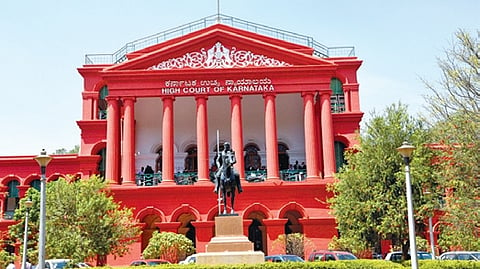

BENGALURU: The Karnataka High Court has imposed a cost of Rs 10,000 on Dr Sabeel Ahmed, also known as "Motu Doctor," an alleged supporter of the terrorist organisation Lashkar-e-Taiba (LeT).
The penalty was imposed while dismissing his petition challenging a trial court's order to deposit Rs 20,650 towards travel and other allowances for a witness from Kerala to appear for the trial in Bengaluru.
Dismissing the petition with costs, a division bench comprising Justice K.S. Mudagal and Justice Vijaykumar A. Patil observed, “The facts and circumstances support the prosecution's contention that the petitioner was abusing the process of law by filing such applications only to delay proceedings.”
According to the National Investigation Agency (NIA), the petitioner is accused of raising funds and providing logistical and financial support to organise events for Lashkar-e-Taiba in Riyadh. During these events, speakers from Pakistan would address attendees, and organisers would identify potential recruits for LeT.
The prosecution claims the petitioner was a supporter of LeT, a terrorist organisation with roots in Saudi Arabia and Pakistan, and had associates in India. He allegedly planned to strike terror in India through targeted killings of prominent Hindu figures and police officers.
The charges against the accused and co-accused are based on an NIA chargesheet, filed under provisions of the Indian Penal Code and the Unlawful Activities (Prevention) Act, 1967.
The trial court completed the framing of charges and recorded the examination of a witness, a scientist from Thiruvananthapuram, Kerala, on 15 February 2024.
On that day, the accused sought an adjournment to 19 March 2024 and requested additional time for cross-examination. The trial court adjourned the case to 5 April 2024, on the condition that the accused pay Rs 20,650 for the witness's travel and related expenses.
Instead of complying, the accused applied to reduce the amount, which the trial court rejected. Subsequently, he moved the High Court, which criticised the petitioner’s conduct, noting that the case had been delayed for nearly a year due to his actions.
The High Court concluded that the petitioner was attempting to misuse legal provisions to stall the proceedings and upheld the trial court’s order to deposit the requisite amount.